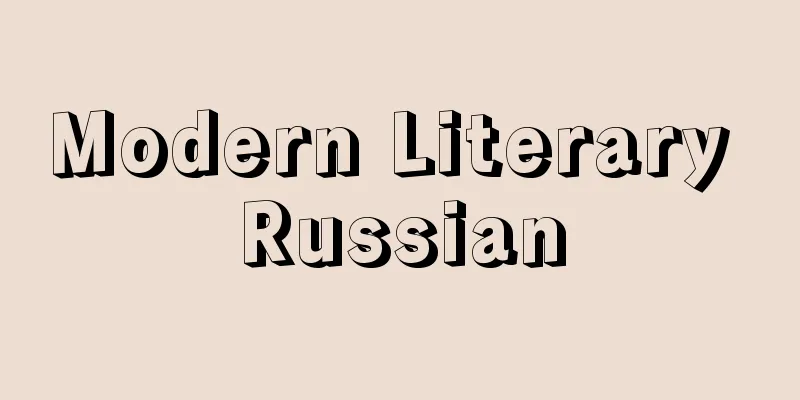Corn Laws

|
A law that placed certain restrictions on the import and export of grain, especially wheat. It has been enacted frequently since the 14th century in England. Initially, it was intended to protect consumers by restricting exports, but from 1660, tariffs were imposed on imports, and the emphasis shifted to protecting producers. In particular, in 1815, after the Napoleonic Wars, a law was enacted that prohibited the import of grain if the grain price did not reach a certain price (80 shillings per quarter for wheat). This law was enacted with the support of landlords and agricultural managers in the context of a fall in grain prices and an increase in imported grain at the time, but merchants and industrialists who wanted to export their products, purchase raw materials cheaply, and keep grain prices and labor costs low and stable were strongly dissatisfied with the law. Starting with a debate between Malthus and Ricardo, who represented the interests of each party (the Corn Laws debate), a fierce conflict arose between landlords and agricultural managers on the one hand and merchants and industrialists on the other over the existence and abolition of this law on the other, which became a problem in British society thereafter. In the subsequent revision of the Corn Laws in 1828, an attempt was made to introduce a system whereby tariffs would be increased or decreased according to fluctuations in grain prices, but this only encouraged speculation and made grain prices unstable, which intensified opposition to the Corn Laws. In the midst of this, merchants and industrialists who advocated free trade formed the Anti-Corn Law League and continued their persistent opposition, so that the Corn Laws were eventually revised in 1842, and then a decision was made in Parliament in 1846 to repeal them. This decision is considered to have marked a turning point towards Britain's free trade policy. [Mitsuhiro Okamoto] Source: Shogakukan Encyclopedia Nipponica About Encyclopedia Nipponica Information | Legend |
|
穀物、とくに小麦の輸出入に一定の制限を加えた法律。イギリスで14世紀以来しばしば制定された。当初は輸出に制限を加えることにより消費者への保護を図ろうとしたものであったが、1660年からは輸入に対して関税がかけられるようになり、生産者の保護に力点が置かれるようになった。とくにナポレオン戦争後の1815年には穀価が一定価格に達しない場合(小麦の場合は1クォーター当り80シリング)には穀物の輸入を禁止する法律が制定された。この法律は、当時の穀価の下落、輸入穀物の増加という状況のなかで地主・農業経営者の支持を受けて制定されたものであったが、生産品の輸出、原料の安価な購入と穀価および労賃の低額安定を望む商工業者はこの法律に強い不満を示すことになった。それぞれの利害を代表するマルサスとリカードとの間に論争がなされた(穀物法論争)のをはじめとして、地主・農業経営者と商工業者との間でこの法律の存廃をめぐって激しい対立が生じ、以後のイギリス社会の一つの問題点となった。その後1828年の改定で、穀価の変動によって関税を増減するという制度の導入も試みられたが、これはかえって投機をあおり、穀価を不安定なものとしたため、穀物法への反対を強めることになった。こうしたなかで自由貿易を主張する商工業者が反穀物法同盟を結成し根強い反対運動を続けたため、結局穀物法は1842年の改定を経て、46年の議会においてその廃止が決定された。この決定はイギリスの自由貿易政策への一つの転機をなすものであったとされている。 [岡本充弘] 出典 小学館 日本大百科全書(ニッポニカ)日本大百科全書(ニッポニカ)について 情報 | 凡例 |
>>: Grain sorting machine - Kokumotsu Senbetsuki
Recommend
pressure gradient microphone
...This type of directional characteristic is cal...
Optic neuritis
…Early detection is important for treatment, and ...
Augustine
The greatest church father of the Western Christia...
Soeda Azenbou
1872-1944 (Meiji 5-Showa 19) Enka performer. His r...
Phocoenoides dalli (English spelling) Phocoenoidesdalli
...A mammal of the family Phocoenoides. One of th...
Neue Sachlichkeit (English spelling)
…Neue Sachlichkeit. The term was given to the new...
Mindfulness Record - Shinshiroku
Written by Kaibara Ekiken. Six volumes. Written in...
Hallé, A.
...The discovery of X-rays by Roentgen in 1895 br...
Azbe, A. (English spelling) AzbeA
… [Modern to contemporary] With the rise of natio...
Parakeet auklet (English: parakeet auklet)
A small Charadriiformes bird of the Auklet family ...
Shizue Akizuki
…At the time of its founding, the group had 42 me...
Schaubühne - Schaubühne (English spelling)
A representative theater company in modern Germany...
Bulbul (Brown-eared bulbul) - bulbul (English spelling)
A general term for birds of the passerine order Py...
Mobile Court
…However, at this stage, the king had not yet ful...
Kamo no Agata-nushi
…Before the Ritsuryo system, the Kurumamochi clan...








![Rishiri Fuji [town] - Rishiri Fuji](/upload/images/67cd25bddb47c.webp)
